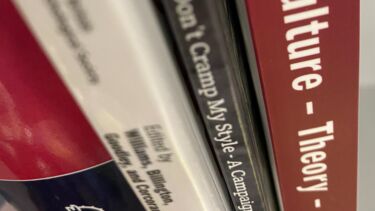Scholarship
How is health research, theory and scholarship transformed by an engagement with critical disability studies?

Leads: Christina Lee, Rhea Halsey and Dan Goodley (University of Sheffield)
An easy read version of this page is available here, with thanks to Speakup Self-Advocacy.
[The images from the easy read documents are licenced. Please do not duplicate or reuse the Photosymbols unless you have a licence to do so.]
We are holding a number of Online Symposia over the six years of the programme, inviting an international mix of disability activists, established and emerging health and disability scholars from a host disciplines. All papers are collated and presentations are recorded as part our Disability Matters Scholarship collection.
We help curate Disability Dialogues which seeks to showcase the work of emerging disability studies scholars.
Two multi-day International Conferences will be hosted in Year 3 (Singapore, ‘Disability matters in health research’) and Year 6 (Sheffield, ‘Disability futures in health research’) with an emphasis on the participation of early career researchers.
A minimum of four journal articles will be written capturing the intellectual themes of our symposia, publications and conferences to engage an interdisciplinary audience (in medicine, social sciences, healthcare research).
Online symposia
Between 2023 and 2029, we are running a number of short and accessible online symposia. We are inviting people to write a short provocative piece (no more than 1000 words) that they will then present online for ten minutes.
Online symposia event will last no more than 1 hour 30 minutes. Automatic live captioning will be used to facilitate the event and written copies of the speaker’s talks will be made available before the session.
A Zoom meeting link will be shared via email ahead of the event. Attendees are welcome to join or leave the event at any time. Participating in the Q&A and discussion is optional. A recording of the talk will be available after the event. You can find video recordings and papers from past symposia here.
If you have other specific access needs or have further questions about access, please contact us. To receive updates for upcoming online symposia and other events, sign up to our mailing list.

iHuman
How we understand being ‘human’ differs between disciplines and has changed radically over time. We are living in an age marked by rapid growth in knowledge about the human body and brain, and new technologies with the potential to change them.
